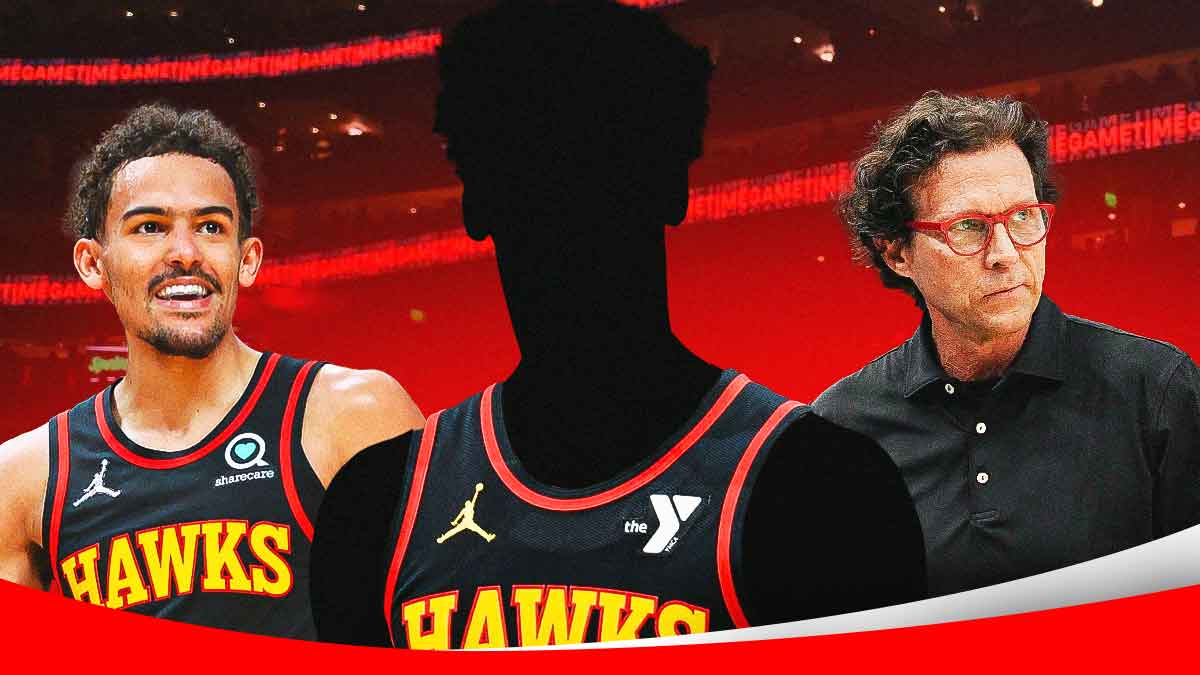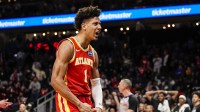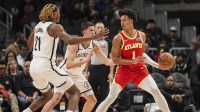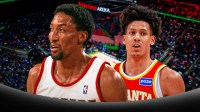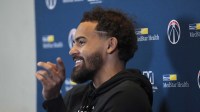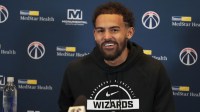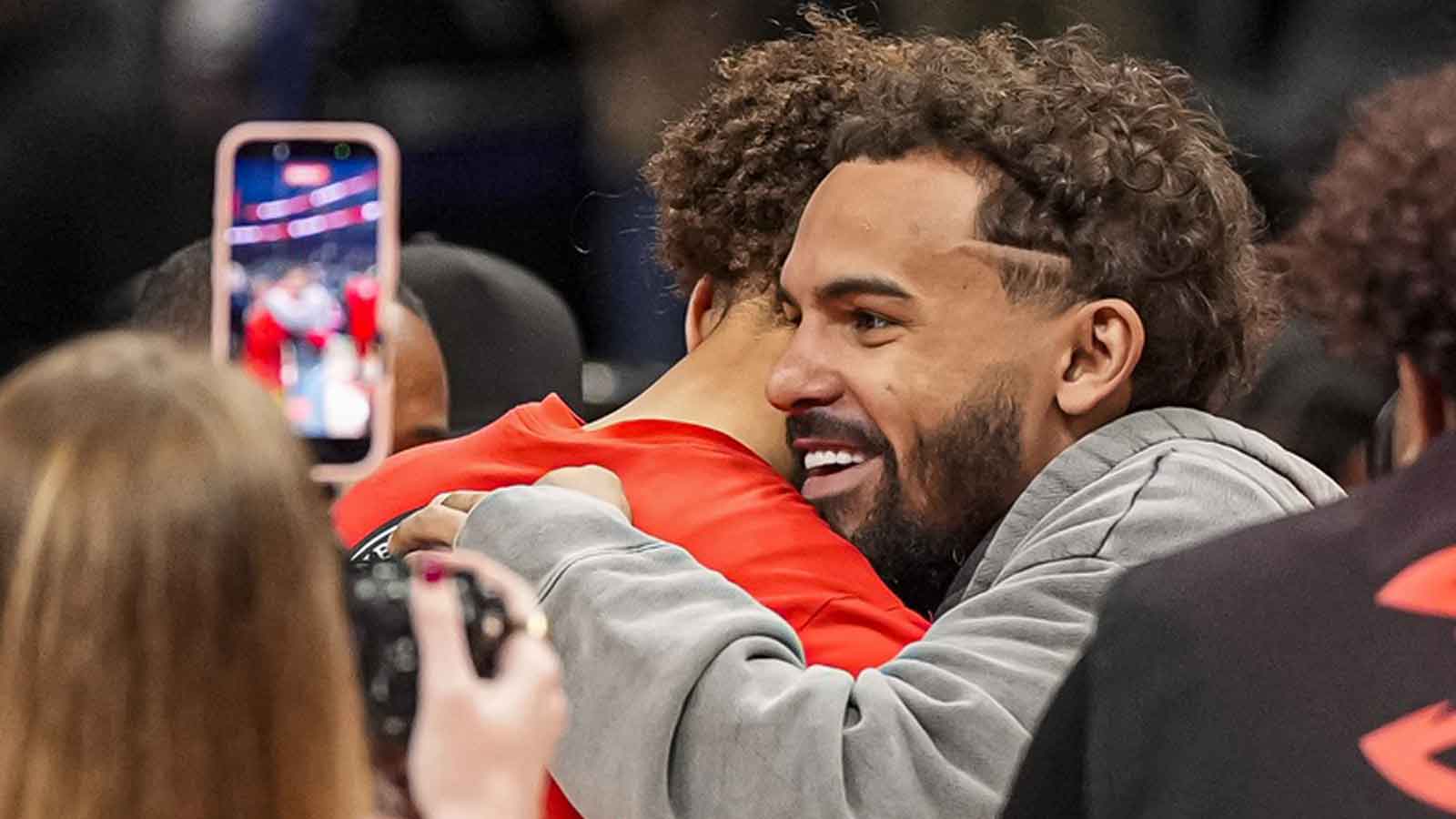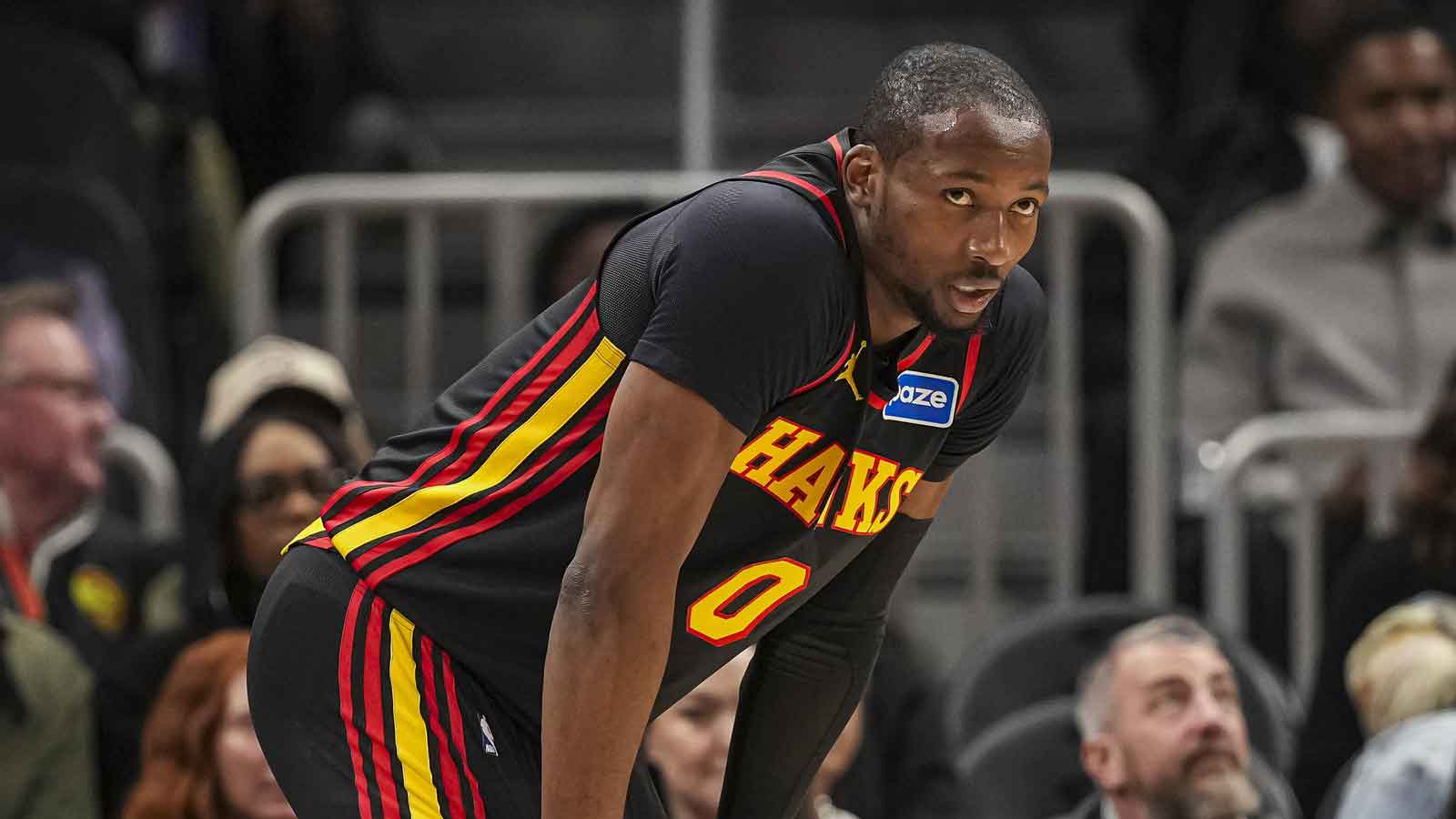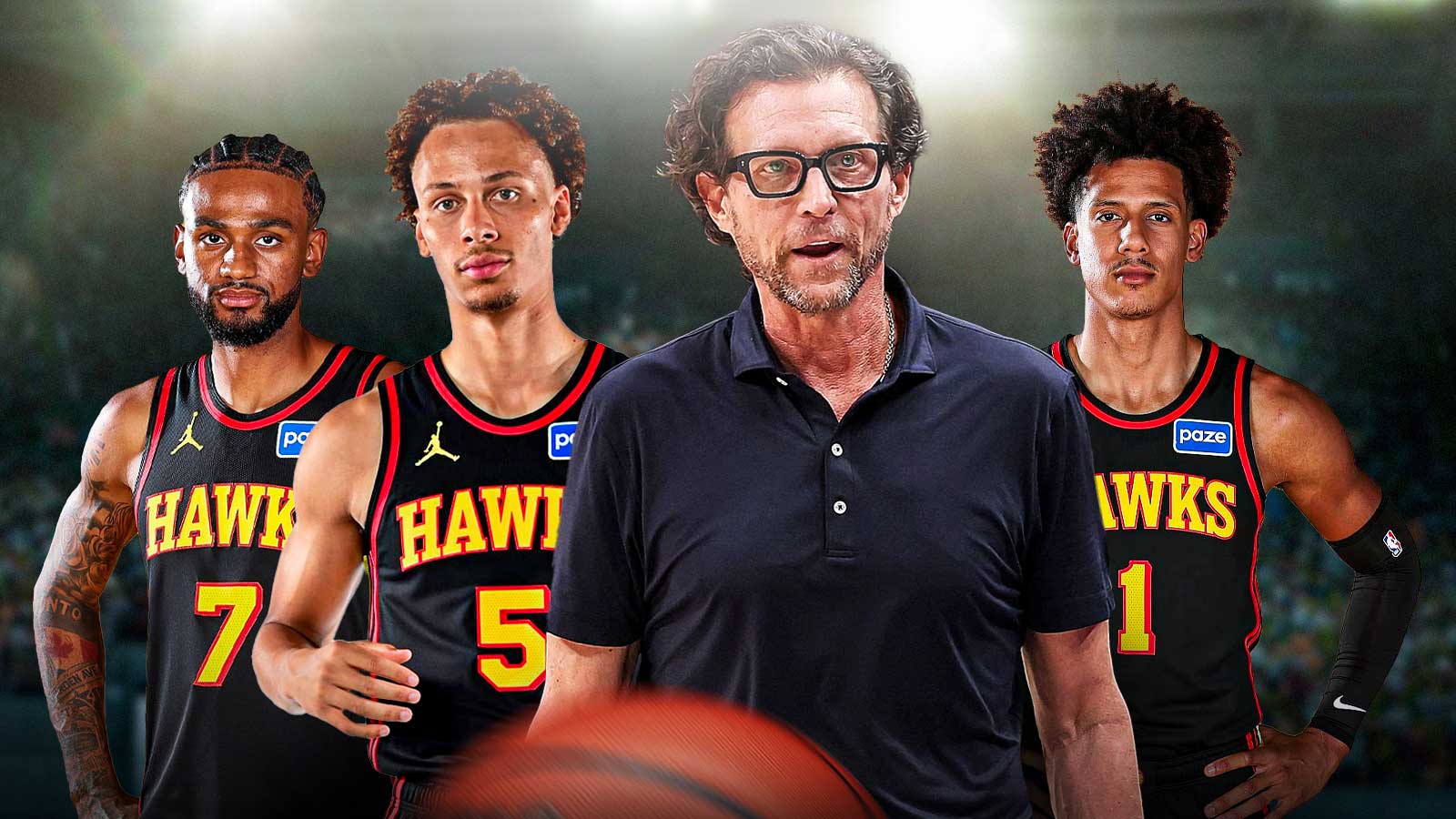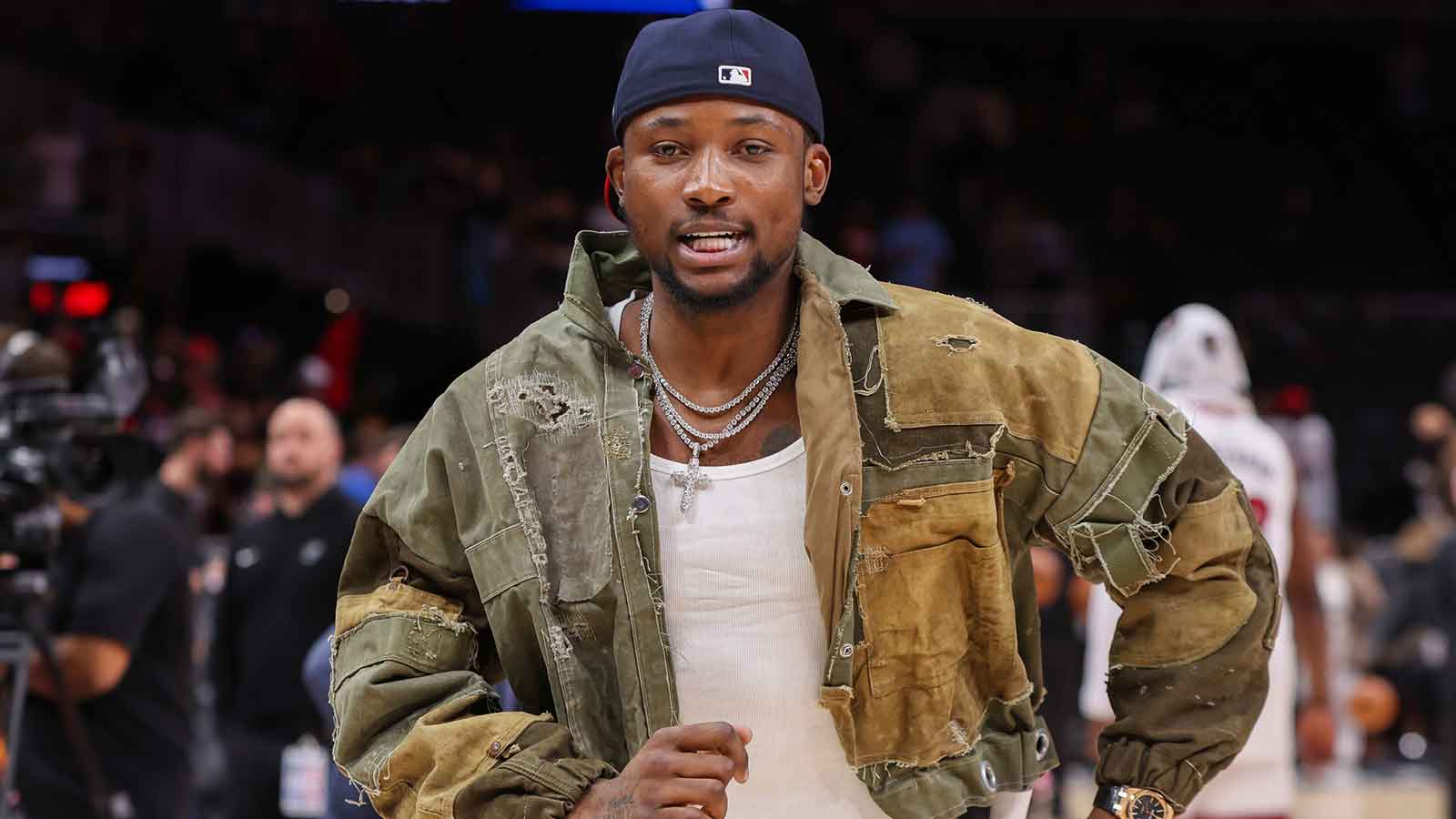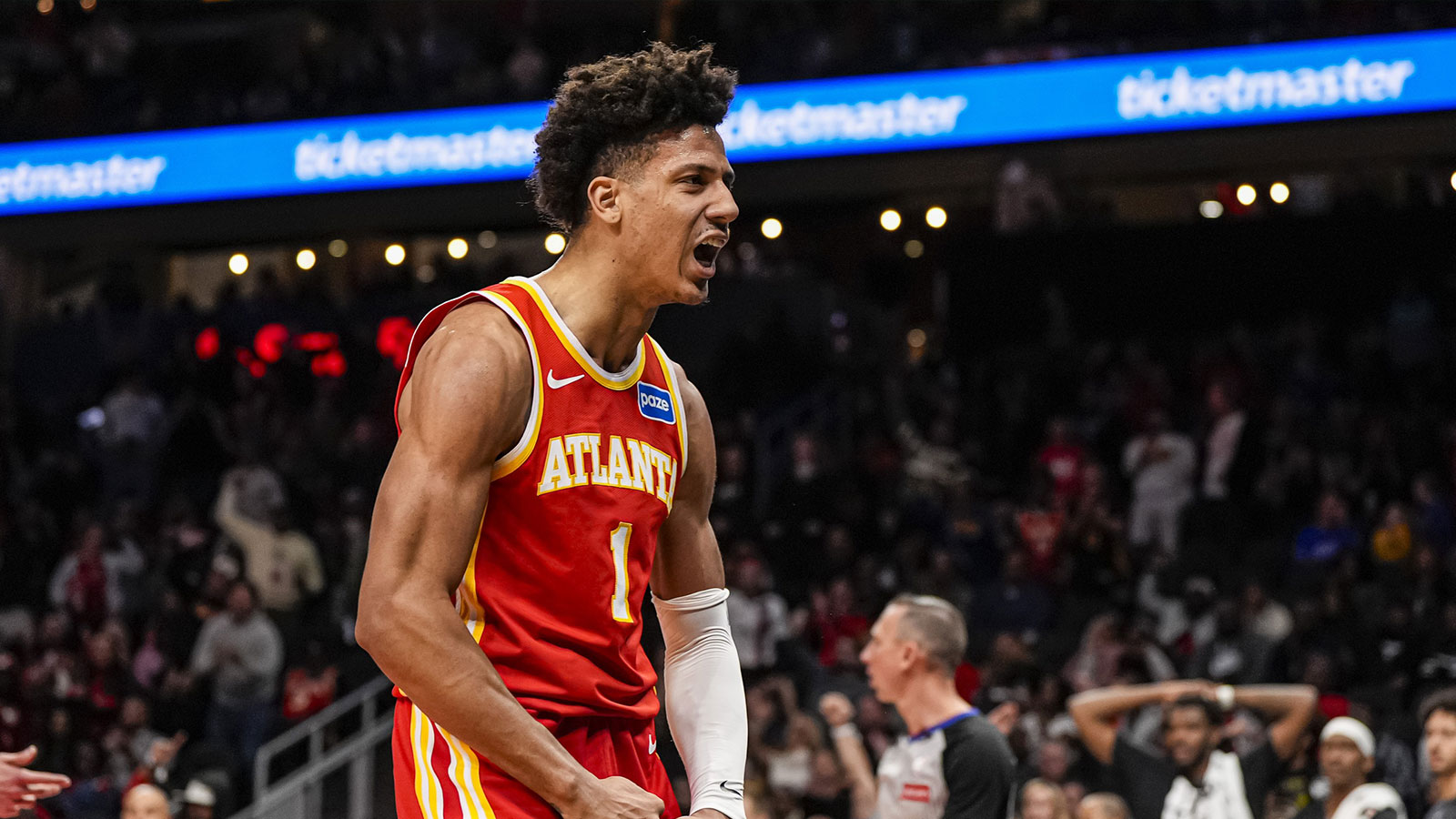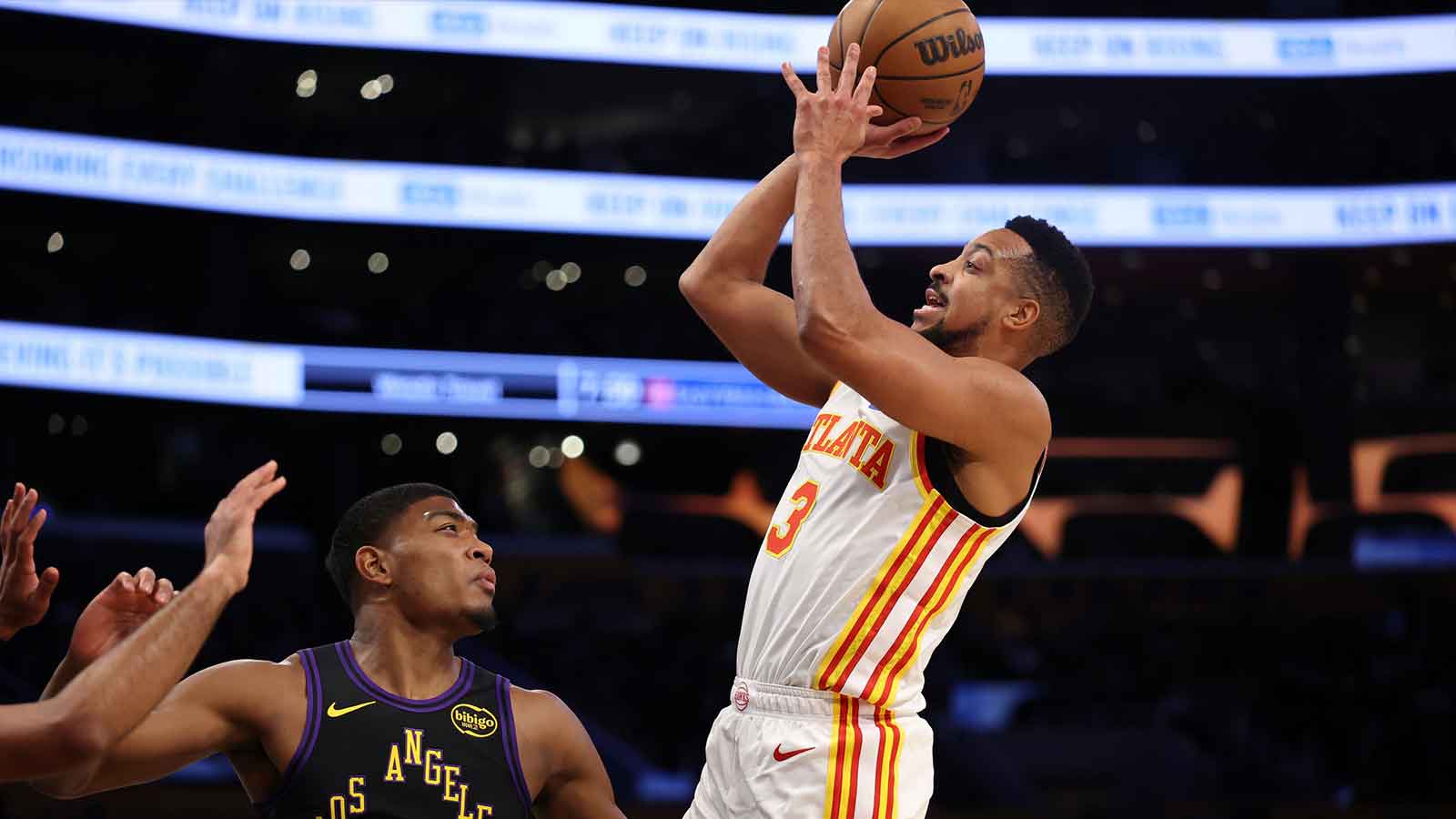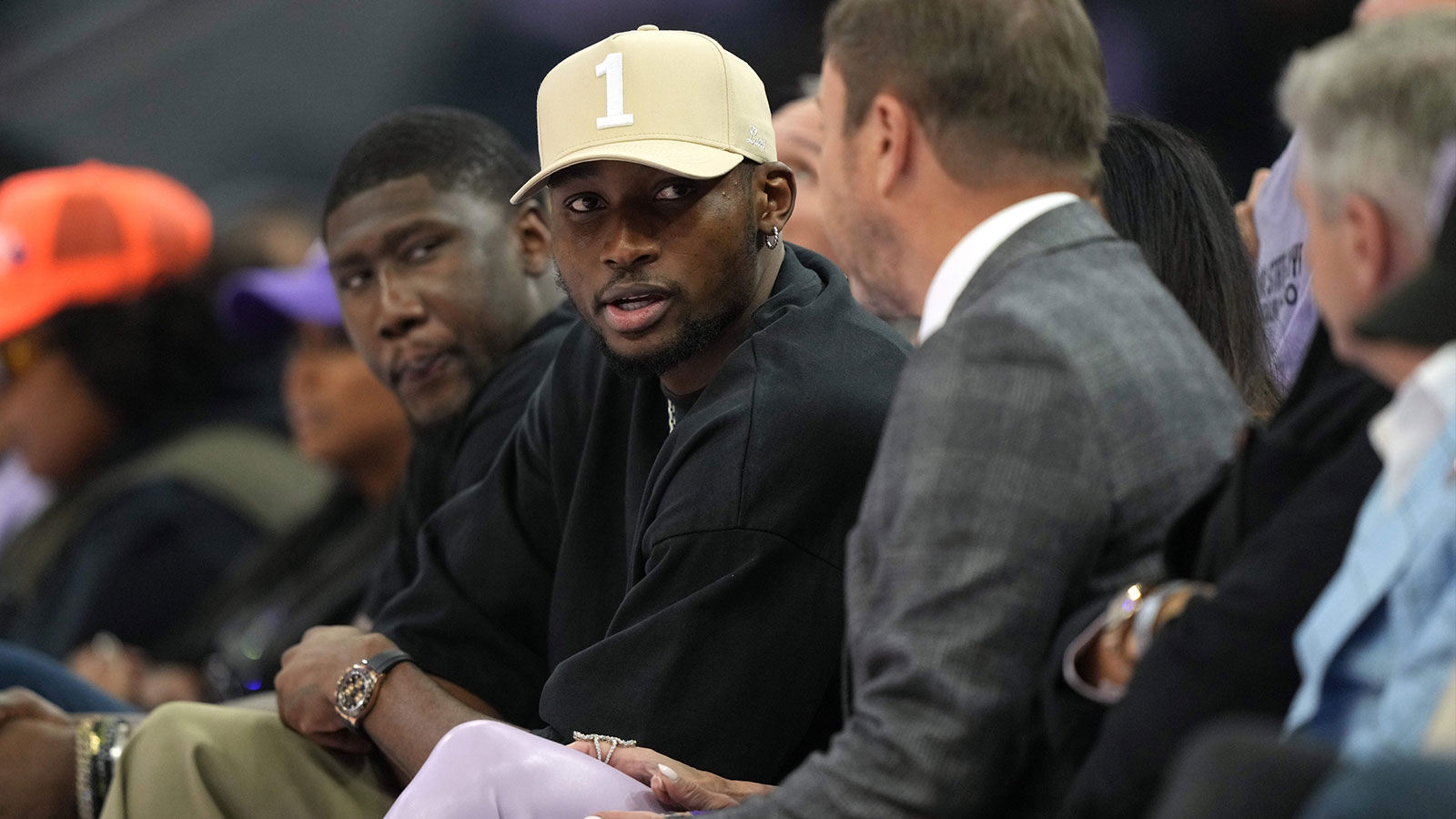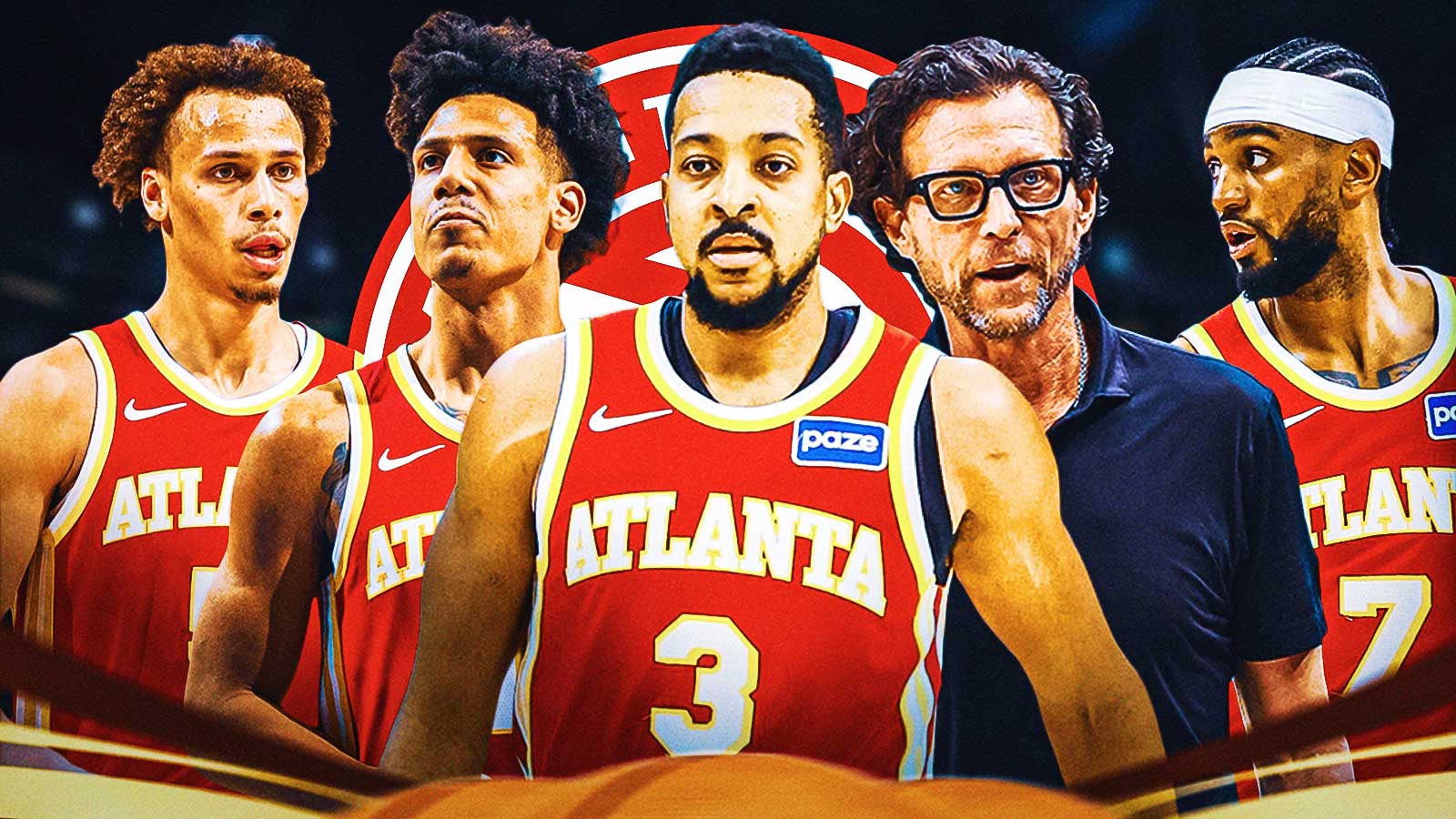The Atlanta Hawks find themselves trapped in the NBA’s most dangerous territory—mediocrity. The Hawks have become the poster team for perpetual potential that never quite materializes. For years, they’ve hovered around the edges of contention, fueled by the brilliance of Trae Young and a collection of intriguing young talent. However, the promise of “what could be” has yet to translate into sustained postseason success. The window to build something real around Trae is narrowing. As such, the Hawks can no longer settle for being just good. They need to be great—and that means making difficult decisions, starting this offseason.
Another Early Exit
The 2024–25 campaign was a frustratingly familiar ride for Hawks fans. Atlanta finished the regular season at 40–42, earning a Play-In Tournament berth. That said, they fell short of the playoffs after consecutive losses to the Orlando Magic and Miami Heat. It was a season defined by inconsistency and underachievement. Sure, there were moments that sparked hope. Trae Young continued to dazzle with his elite scoring and playmaking, and Jalen Johnson emerged as a future cornerstone with improved defense and versatility. Still, the team never fully mailed it in. The flaws were just as apparent—spotty defense, lack of cohesion, and an identity crisis that plagued them all season long. The result? Another early exit and another offseason of hard questions. The core isn’t broken, but it’s not working as intended. And now, Atlanta stands at a crossroads: continue riding this treadmill of mediocrity or shake up the roster in pursuit of real progress. One move looms largest in that conversation—trading Onyeka Okongwu.
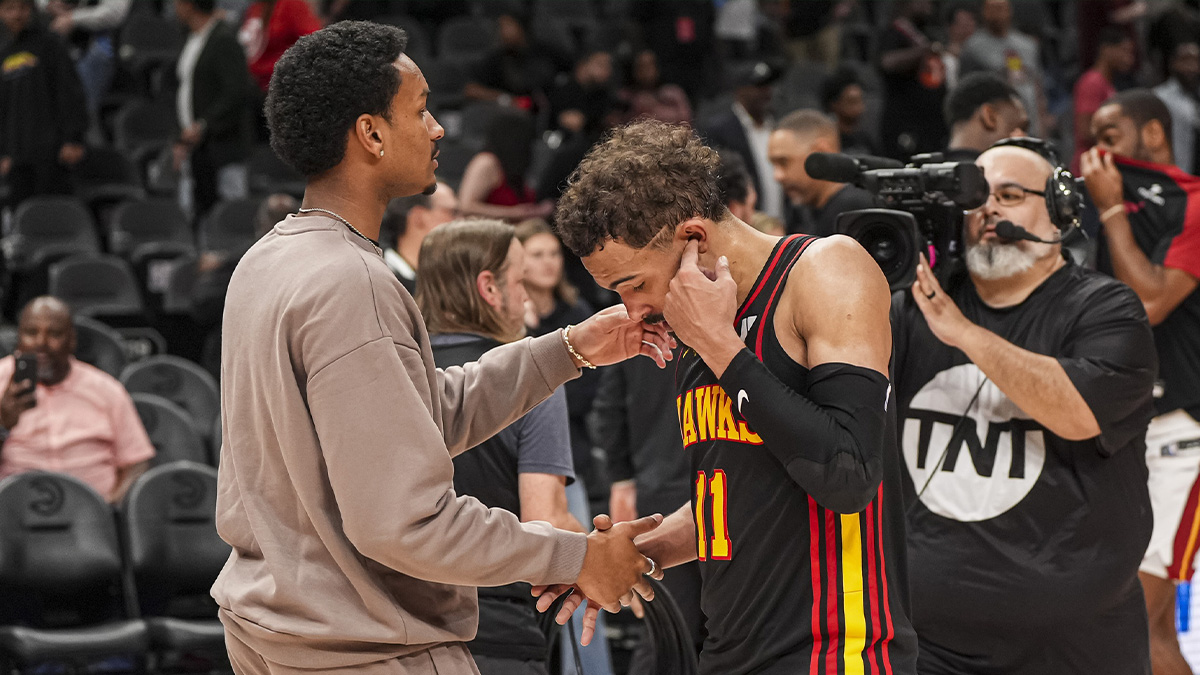
Here we will discuss the one player whom the Atlanta Hawks must trade as they enter the 2025 NBA offseason.
The Case for Trading Onyeka Okongwu
Onyeka Okongwu has been a model of professionalism and steady growth since the Hawks drafted him sixth overall in 2020. He’s become one of the NBA’s more versatile big men. He is mobile enough to switch on defense, tough enough to rebound, and skilled enough to finish around the rim. He averaged 13.4 points, 8.9 rebounds, and 0.9 blocks per game in 2024-25. As such, Okongwu is quietly one of the league’s more underrated centers. He doesn’t need the ball to impact the game, and on a team with high-usage stars, that’s an asset.
But that’s also the problem.
Okongwu is good. He is too good to be a backup—but not good enough to elevate Atlanta past its current ceiling. Remember that is Clint Capela still set to log heavy minutes in the future. Atlanta is also unwilling to fully commit to a youth movement. With that, Okongwu’s role remains inconsistent. The Hawks extended him last fall, locking him into a deal worth $15 million annually starting in 2025–26. That’s a bargain for a 24-year-old big with his skill set. Still, if Atlanta truly wants to swing for the fences, that deal becomes less of a reward and more of a resource.
A Star-Hunting Trade Chip
Let’s not dance around it: Atlanta wants a star. Recall that the Hawks were reportedly interested in Kevin Durant as recently as February 6. That might seem like wishful thinking, but the desire to shake things up at a seismic level is very real.
Here’s where Okongwu fits in. Aside from Trae Young, no one on the Hawks roster has more trade value than Okongwu. Atlanta likely views Jalen Johnson as untouchable, given his emergence as a do-it-all forward with legitimate two-way upside. That leaves Okongwu as the prime trade chip.
A potential Durant deal, at this point, becomes financially possible by combining Okongwu’s $15 million salary with some other players. Maybe they can consider guys like Kobe Bufkin or even Georges Niang. Any such combination could get Atlanta to roughly $40 million in outgoing salary—enough to absorb Durant’s deal under CBA matching rules. It’s a high-risk, high-reward move. However, it's one that gives Atlanta a real shot at leaping into the Eastern Conference elite.
Why Now?
Of course, there's a compelling basketball argument for keeping Okongwu. He’s young, improving, and offers cost-controlled production. On the flip side, Atlanta doesn’t have the luxury of patience anymore. The fanbase is restless. Ownership has invested in a high-priced roster that has yielded minimal playoff success. The front office has already begun to reshape the roster around a core they believe in—Young, Johnson, and Zaccharie Risacher. The question now is whether they have the firepower to win in the postseason.
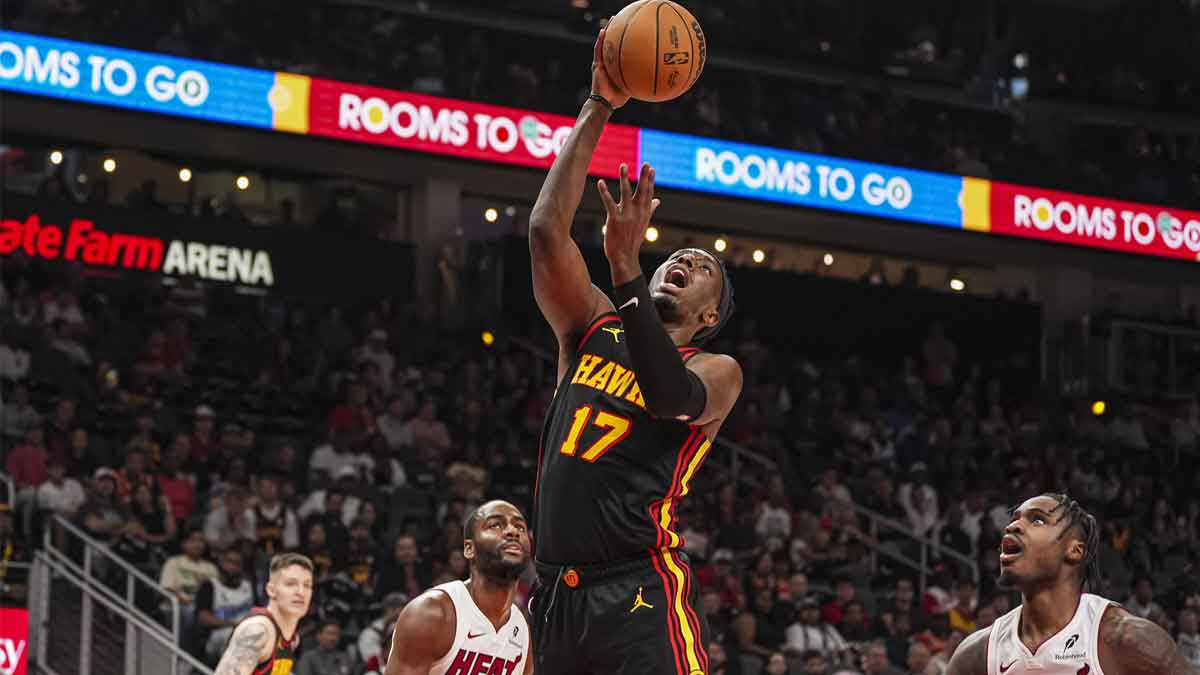
The thing is that trading Okongwu won’t be easy. He’s beloved in the locker room, and his upside is still tantalizing. However, the Hawks need more than stability—they need transformation. Waiting for internal development to click might sound prudent. That said, it’s also how teams get stuck in playoff purgatory. If they want to speed up the timeline and put pressure on the rest of the Eastern Conference, Okongwu is the kind of piece that moves the needle in major trade talks.
A Final Pivot
Ultimately, this offseason isn’t just about clearing roster logjams or flipping contracts. It’s about identity. Are the Hawks a team that wants to compete—or a team that wants to win? There’s a difference. Competitors accumulate talent. Contenders consolidate it.
Onyeka Okongwu has done everything the franchise has asked of him, but the time has come to ask something more—to be the centerpiece of a deal that changes everything. Atlanta’s front office needs to be aggressive, calculated, and unafraid of public backlash. Because if the Hawks truly want to shift from frustrating middle-tier status to legitimate contender, standing pat simply won’t cut it.
It may be uncomfortable, even unpopular. But if Atlanta wants to write a new story in 2025, the first chapter starts with a tough trade. And Okongwu, through no fault of his own, is the key to unlocking it.

